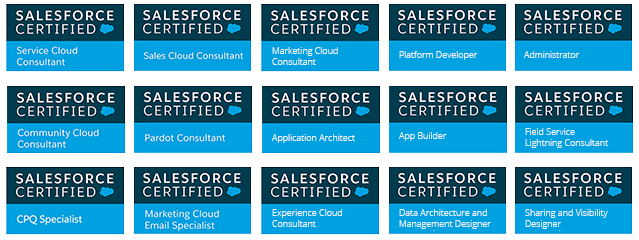Salesforce.com has the most sophisticated Service CRM solution today. When Salesforce launched it was a sales tool for tracking and monitoring interactions, purely from a sales perspective. As the platform grew and customers had a need to integrate their service organization, Salesforce.com launched their call center application. Since its release in 2005, it has evolved significantly from its call center starting point to become a service platform across all channels.
Currently Salesforce Service Cloud competes with RightNow, Clarify and other leading call center applications. Its extended functionality supersedes these products. Basing the application on the Force.com platform enabled implementation of new features that makes it better than the competition:
- Visualization of Entitlements
- Knowledge Management
- Live Agent (chat)
- Social Media integration
- Email to case
- and it is a very extendable platform
The Service Console feature allows you to efficiently handle cases in a high volume customer interaction environment. Customers are able to submit inquiries via the Web and email as well as via a customer web portal. Salesforce also extended the Service Cloud to listen to social media networks and allow Service Cloud customers to track their customer’s social profile within Salesforce.com for Facebook, Linkedin, Twitter, etc.
Service Cloud integrates seamlessly into Sales Cloud, which makes it easy to share customer information throughout the entire organization. That way, sales and other customer facing employees can be aware of what their customer’s service issues are. Competitors’ systems are more closed and harder to integrate to other systems.
We see customers moving their data from Clarify, RightNow and other call center systems to Salesforce Service Cloud to gain leading functionality that keeps evolving with changing customer needs and has the integration capabilities to provide a true 360 degree view of the customer. The sales team has access to customer service records, the customer care team has access to product information and account team interactions, while management has a complete view of customer interactions across all channels, including social media.
What is Service Cloud’s value to you?
- Volume Customer Interaction
- Integrates with your CTI
- Track Social Media
- Chat (live agent) integration
- Sophisticated Knowledge Management
- Integration to external systems
- Internal collaboration with Chatter
- Easy reporting and dashboards
- Mobile integration
Watch this video on implementing Salesforce Service Console:
https://www.youtube.com/watch?v=9mfUKH1xG1w
If you want to learn more about Service Cloud, talk to Service Cloud customers and hear about best practices, join us for Service Cloud Happy Hour at our San Francisco office on September 5, 2013. Click here to register (seating is limited).
#Lightning #SalesforceLightning #ClassictoLightningMigration #ServiceCloud #SalesforceImplementation



